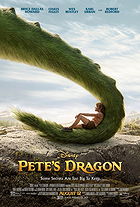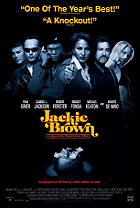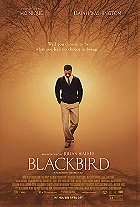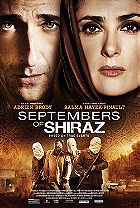Disney’s love for orphans-in-the-wild was prominent in 2016 between this remake, their second live-action Jungle Book, and a journey into Roald Dahl’s macabre world in The BFG. All of them are best when detailing the quietest moments of the wild, imaginative lives of their urchins, especially Pete’s Dragon, and at their worst when kowtowing to the demands of special-effects heavy cinema. If I told you that Pete’s Dragon ended in the destruction of a bridge, lots of fire, and children in danger, would you say I was bullshitting? I’m not, but I wish I were.
Pete’s Dragon simply cannot hold the weight of thrills and spectacles of that nature. This is essentially a boy-and-his-critter story, one comprised of silence and connection, of exploring and acute observations. Personally, I wanted director David Lowery to go all in on the art film for children vibe that large chunks of the film openly presents itself as and flirts with. The forest and its creatures, most importantly Elliott the dragon, are some of the most intriguing, elegiac, and expressive characters of the film.
Think of something along the lines of Steven Spielberg merged with Terrence Malick as Pete gets pseudo-adopted by Elliott, the fuzzy green dragon that emotes and projects better than Karl Urban and Wes Bentley get to. He’s a fully realized creation, even in the moments where his animation goes glaring artificial or rubbery, and one that invites a deep emotional connection. Try not to see a beloved pet, either current or from childhood, in his bodily movements and sense of play.
It is in these moments when Pete’s Dragon recalls The Black Stallion that it’s operating at its highest level, and then the intrusion of the outside world collapses the gentle world that Pete and Elliott have built together. These two misfits are restored to their proper societal places, often times through violence and forced removal, and this plot thread is regressive and moralistic. The magic of the fairy tale-like beginning evaporates as the ephemeral becomes solid with Urban’s sudden transformation into a villain and an engine to forcefully drive the story towards its conclusion.
I love Pete’s Dragon for its sensitivity and quietness. I love it for its lack of narrative and folksy charms, best exemplified by the fine work done by Bryce Dallas Howard and Robert Redford. I love it for watching the secret world created by Pete and Elliott, and brought to vivid life through the central performance of Oakes Fegley. Fegley often has to act opposite nothing and his final work exhibits a sense of adventure, play, and imagination that bursts through the better parts of the rest of the film. The weaker parts of Pete’s Dragon are forgiven during these bright spots.
 Login
Login
 Home
Home 95 Lists
95 Lists 1531 Reviews
1531 Reviews Collections
Collections
 0 comments,
0 comments, 







